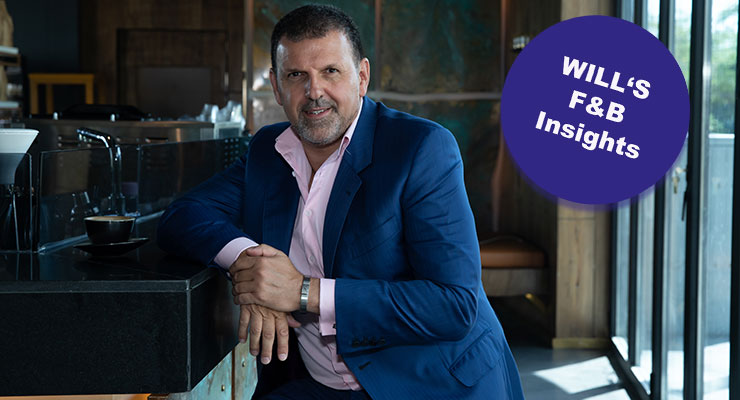One of the key challenges that European restaurants face is the escalating cost of ingredients and supplies. The constant rise in food prices has strained profit margins, making it increasingly difficult for establishments to sustain their operations. We are not talking about a short phase of one or two basis points, we are talking about a 30 – 60% increase in cost compared to other years. This cannot be compensated by endless prize increases, since at one point the guest will decide not to come anymore. Disruptions in the supply chain have further exacerbated the situation, leading to shortages of essential ingredients and creating additional challenges for businesses.
Changing consumer preferences and habits present another obstacle for restaurants in Europe. There has been a shift towards fast casual or QSR dining experiences, a focus on locally-sourced and healthy ingredients, and a growing demand for technological advancements to enhance convenience. Traditional fine dining establishments are struggling to adapt to these evolving trends, while the rise of delivery services and meal kit options has added further complexity to the industry. In my opinion the number of business that will fold in the years to come are not related to the pandemic, but have more to do with a shift in costumer needs and inability of a larger number of establishments to cope with these.
Labor costs are also on the rise in Europe, making it challenging for restaurants to hire and retain skilled workers. While the rule of thumb was to run an F&B operation between 25-30% of the turnover, we are now looking more into 35-40%. The industry is not only facing a shortage of qualified staff, which is impacting the quality of service and overall guest experience they are also facing the long overdue demand to overhaul its workplaces to attract the type of team member they require to run these operations. Since this column is aiming to be brutally honest, we have consumed staff in the past decades, always knowing there will be more. These times are over, and even the broadly discussed onboarding of more foreign workers in different countries, will not resolve the underlying issue, that this industry is still exploiting its workforce. Government demands to increase base salary levels just emphasizing how bad the salary levels really are. Regulatory hurdles and bureaucratic processes further complicate the situation, especially for smaller independent restaurants that lack the resources to navigate complex legal requirements.
That brings us to another vital element of F&B businesses, the rents. It is crucial for developers to have a deeper understanding of the needs and challenges faced by their F&B tenants. The focus should not solely be on rent figures but on creating sustainable and mutually beneficial partnerships. High rent levels can be detrimental to the success of a restaurant, and fit-out contributions that need to be repaid in unrealistic time frames can hinder the business’s growth and defeat there purpose. It is essential to strike a balance and ensure that the terms of the commercial deals support the long-term success of the restaurant. In other words leasing teams cannot just increase the percentage of F&B outlets in a project because it is easy to rent out in an ever more challenged retail environment, they actually need to start developing a broader look into the market, the environment of their project and what the proposed tenant will cater for. In other words to curate the experience versus just filling a white space. I am fully aware that’s not what you want to hear when thinking of quick returns and selling properties, but that’s what you need to hear to create actual sustainable value.
But where there is darkness there is light and so despite the numerous challenges, there are opportunities for the restaurant industry in Europe to thrive. Many establishments have successfully embraced new technologies and consumer trends, adapting to the changing landscape of the industry in particularly QSR (Quick Service Restaurants). The QSR industry will keep growing successfully in uncertain times since they can provide consistent and affordable quality for the societies in the Western markets. Its not automatically talking about low-nutrional value, it is a fallback position for an opportunity to eat out without breaking the bank. There is a growing awareness of the importance of supporting local businesses and sustainable food practices, which has sparked renewed interest in farm-to-table dining and other quality-driven trends.
Ultimately, addressing the crisis facing the restaurant industry in Europe will require collaboration between government, industry players, and consumers. It is essential to innovate, adapt, and support one another to navigate the complexities of the current environment. By acknowledging the difficulties of running a successful restaurant and working together to overcome obstacles, we can ensure the continued vibrancy and diversity of the European restaurant scene for years to come.

Will Odwarka
Will Odwarka is the Founder and CEO of Dubai-based firm Heartatwork Hospitality Consulting since 2019. He was born and raised in Vienna, Austria. He has 30+ years of experience leading international strategic growth and development, Franchise and partner management, and F&B operations. He successfully opened over 1000+ outlets in over 40 countries for renowned global players such as McDonald’s, Starbucks, Burger King, Costa, and Wendy’s and smaller players like Creamscafe and Coffeeshopcompany. He strongly focuses on international market entry for F&B players, brand and investor scouting, and AI in hospitality in the Middle East and Europe. Will Odwarka is a guest lecturer at the Academy of Hospitality in Dubai and trainer at the Gregory Vogt School for retail professionals in Dubai. Furthermore, he is a Co-Owner/Operator of Mozart-Hospitality Management, overseeing the operation and development of new food concepts.







